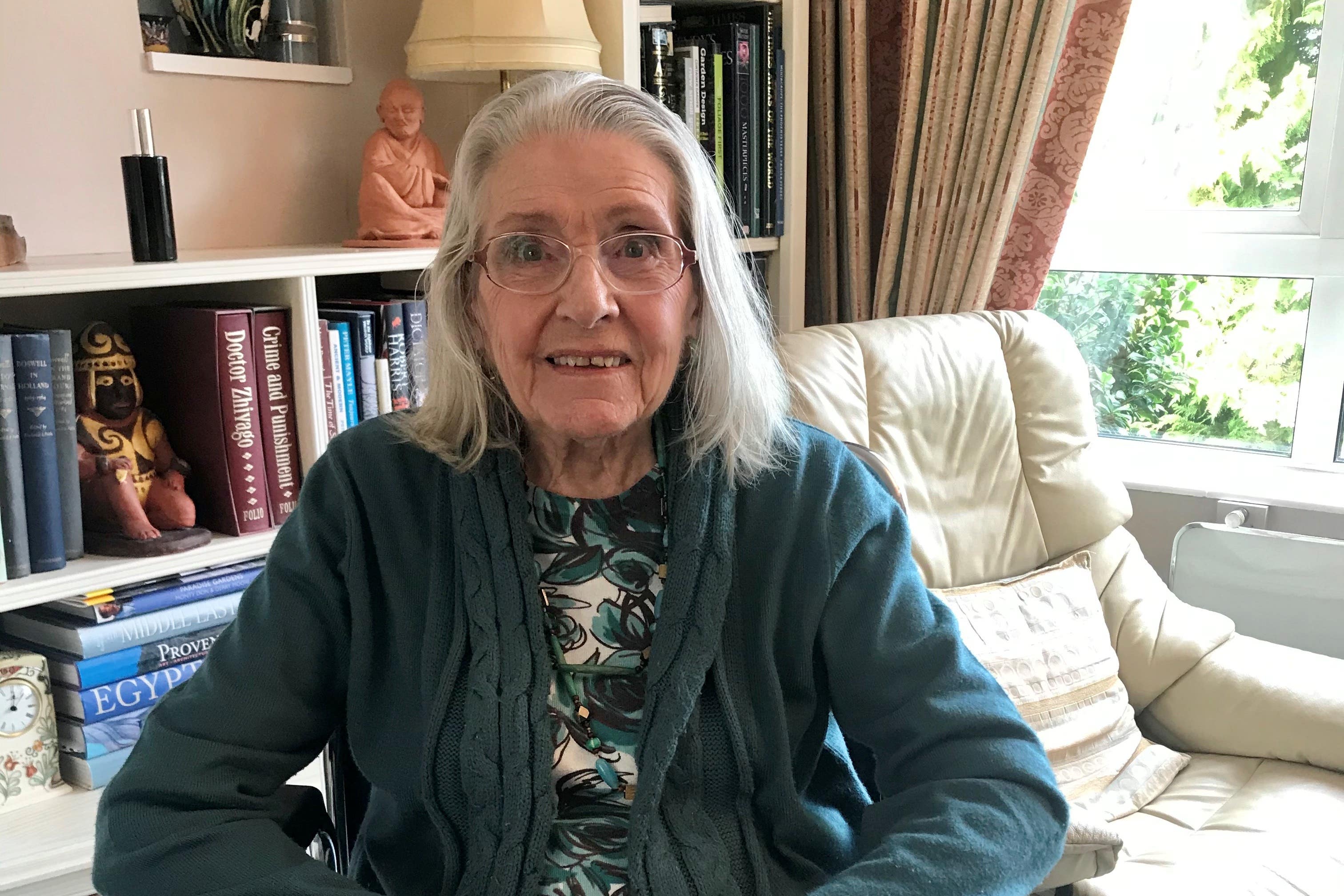Mother pleaded to be ‘put to sleep’, says daughter who backs assisted dying
Joy Roberts said her mother was diagnosed with Motor Neurone Disease at the age of 89 during 2020.

Your support helps us to tell the story
From reproductive rights to climate change to Big Tech, The Independent is on the ground when the story is developing. Whether it's investigating the financials of Elon Musk's pro-Trump PAC or producing our latest documentary, 'The A Word', which shines a light on the American women fighting for reproductive rights, we know how important it is to parse out the facts from the messaging.
At such a critical moment in US history, we need reporters on the ground. Your donation allows us to keep sending journalists to speak to both sides of the story.
The Independent is trusted by Americans across the entire political spectrum. And unlike many other quality news outlets, we choose not to lock Americans out of our reporting and analysis with paywalls. We believe quality journalism should be available to everyone, paid for by those who can afford it.
Your support makes all the difference.A woman who said her mother pleaded to be “put to sleep” while suffering with Motor Neurone Disease (MND) has voiced her support for legalising assisted dying.
The issue is due to be debated in Parliament next month, with MPs expected to have an initial vote on assisted dying for the first time in the House of Commons in almost a decade.
Joy Roberts, 68, said her mother Irene Wright was diagnosed with MND – an illness with no cure – at the age of 89 in 2020 and suffered a “fairly rapid deterioration”, during which she lost her ability to use her limbs, eat, speak or go to the toilet unaccompanied.
“She was not happy – she did talk about the fact that she wanted to die, that she wanted to go, she had had enough,” Ms Roberts told the PA news agency about her mother, who died in bed aged 90.
“All she kept on saying was just, ‘put me to sleep, just put me to sleep, why can’t I just be put to sleep’. She did not want to go through that.”
Ms Roberts, based in Dorking, Surrey, said her mother had “very simple pleasures in life” that were “very quickly taken away from her” due to her diagnosis, including cooking and gardening.
“There was nothing that she could do other than sit on the sofa and read books and crossword puzzle books and things like that,” said Ms Roberts, who is semi-retired.
“That was also then very quickly taken away from her because she could no longer hold a pencil.”
Ms Roberts said the “final straw for her came when she could no longer eat” and had to be fed through a tube by nurses, after which she became “very depressed” and could not enjoy being around her great-grandchildren any more.
“From that point on, I think my mother just wanted to go, simple as that,” she said.
“In the end, her complete loss of any dignity… she just hated it.
“She just hated it, when she was having to wear adult nappies and she soiled herself on occasions and having to be cleaned up by carers and so on – it was just excruciating for her.”
Ms Roberts said her mother had enjoyed a “wonderful life” before her diagnosis and would have “jumped” at the opportunity of assisted dying, if it had been available.
“She’d been with my father for 68 years, so she had a very, very happy marriage, she had her children, her grandchildren, her great-grandchildren – there was nothing left to do, to achieve, to visit,” said Ms Roberts.
“After she was diagnosed, she made a living will anyway, and my father did one at the same time, which clearly stated that if she got an infection, which was quite common through MND, that she wasn’t to be treated.
“So we did what we could within the legal framework to ensure that her agony wasn’t prolonged any more than it needed to be, but even so, just two or three months shorter would have just given her a much more dignified and happy death, instead it was a miserable one.”
Ultimately, Ms Wright died in her sleep.
“(There was) no one around her at the time, because we didn’t know from one day to the next, and it wasn’t predicted that she was likely to go at that particular point,” Ms Roberts said.
If she had been able to have an assisted death, Ms Roberts said her father Alan Wright “wouldn’t have had to go through that awful thing of waking up and finding her gone in the morning”.
“We would have all been prepared for it, and she would have been so much happier if we could have just done it that little bit earlier,” she added
Ms Roberts said she would urge MPs to support the legalisation of assisted dying in the UK.
“If you get to the point where you are not getting anything out of your life, and you know that you are dying, I think one would just have to question why you would want someone to be kept alive in those circumstances,” she said.
“If they were really miserable and potentially going to be in a lot of pain and experience a very unpleasant death, why would you not want your loved ones to die peacefully with the people that they love at a time of their choosing?”